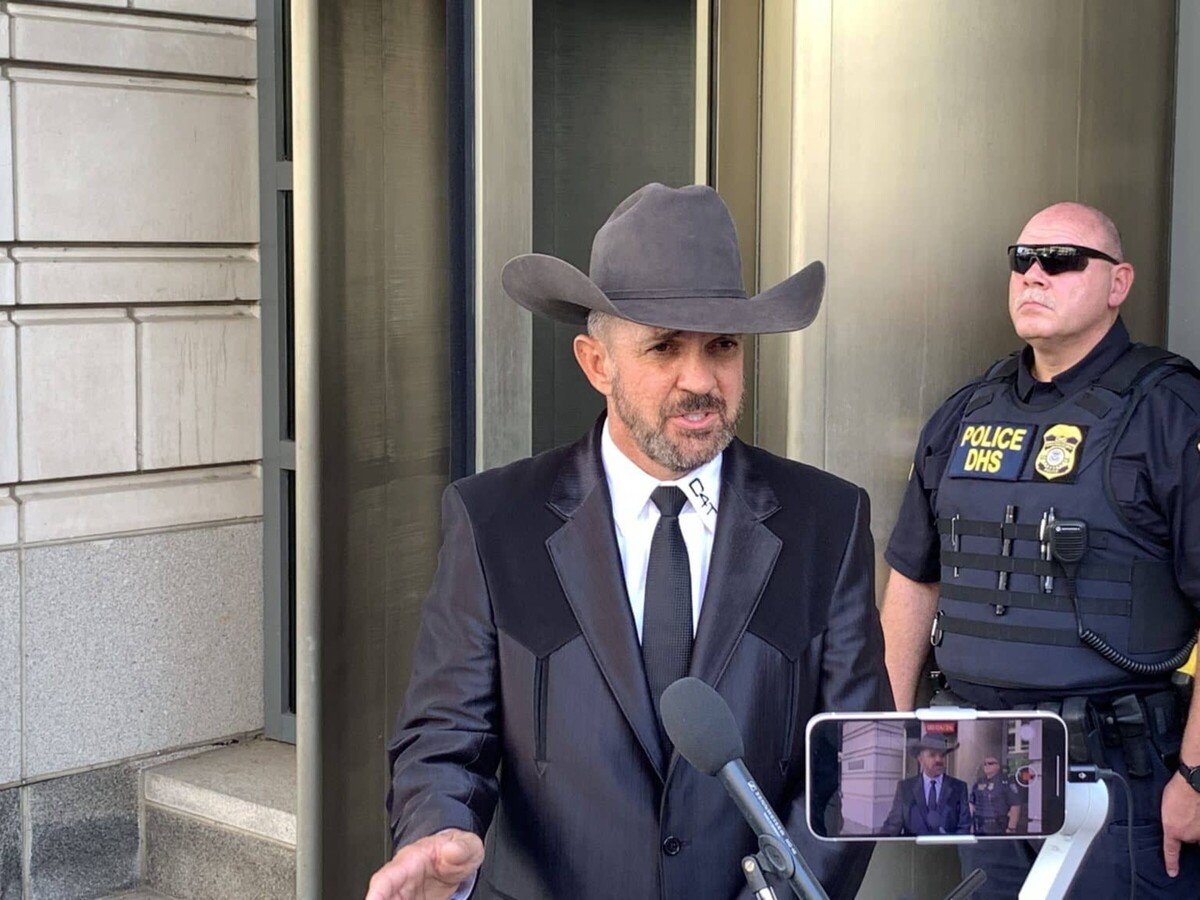Image


While the United States Supreme Court ruled in complete agreement that Trump should be on the ballot nationwide and that the 14th Amendment needs some fine tuning around enforcement and consequences, it was very clear in its ruling that the finding of the opinion issued was specific to Federal Office Holders.
As such the ruling without naming Griffin is not good news for a case that was winding its way through the Supreme Court on behalf of Cowboys for Trump founder Couy Griffin of Alamogordo, Otero County, New Mexico. Mr. Griffin's case No. 23-279 still shows a status of "DISTRIBUTED for Conference of 2/16/2024."
The high court's ruling on the 14th Amendment does not apply to state-level officials, which was bad news for the "Cowboys for Trump" co-founder who was removed from his post as a county commissioner in New Mexico.
A judge in the state ordered Couy Griffin removed in 2022 and banned him from seeking further public office under the terms of the 14th Amendment after he was convicted in federal court of a misdemeanor for entering the Capitol grounds Jan. 6.
Griffin appealed the decision to the Supreme Court No. 23-279 and told AlamogordoTownNews.com on KALH Radio last month that he was hopeful a ruling in Trump's favor could help his case.
The ruling, however, makes it clear it does not apply to lower-level officials.
“This case raises the question whether the States, in addition to Congress, may also enforce Section 3. We conclude that States may disqualify persons holding or attempting to hold state office. But States have no power under the Constitution to enforce Section 3 with respect to federal offices, especially the Presidency,” the ruling said.
In our federal system, the National Government possesses only limited powers; the States and the people retain the remainder.” Bond v. United States, 572 U. S. 844, 854 (2014). Among those retained powers is the power of a State to “order the processes of its own governance.” Alden v. Maine, 527 U. S. 706, 752 (1999).
In particular, the States enjoy sovereign “power to prescribe the qualifications of their own officers” and “the manner of their election . . . free from external interference, except so far as plainly provided by the Constitution of the United States.” Taylor v. Beckham, 178 U. S. 548, 570–571 (1900).
Although the Fourteenth Amendment restricts state power, nothing in it plainly withdraws from the States this traditional authority.
And after ratification of the Fourteenth Amendment, States used this authority to disqualify state officers in accordance with state statutes. See, e.g., Worthy v. Barrett, 63 N. C. 199, 200, 204 (1869) (elected county sheriff); State ex rel. Sandlin v. Watkins, 21 La. Ann. 631, 631–633 (1869) (state judge).
Such power over governance, however, does not extend to federal officeholders and candidates.
Couy Griffin responds via podcast interview on KALHRadio.org
https://youtu.be/osaLQF8ZTZY?si=FMyyDQ6BQHVhw0yZ
Thus, it appears Mr. Griffin's journey ends to be a state office holder in the state of New Mexico. The question for Mr. Griffin is however will he ever seek office? Stay tuned to hear more from Mr. Griffin in regard to that possibility...